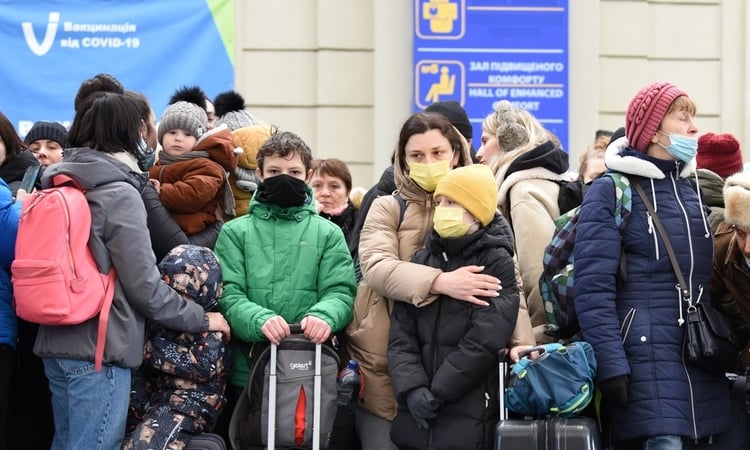News Flash


WARSAW, July 3, 2025 (BSS/AFP) - With a wrench in hand, Ukrainian refugee Oleksandr Belyba is busy repairing a van in a garage in the Polish capital.
The 33-year-old is devoted to his work, and wants to stay in Poland, which benefits economically from refugees but where anti-migrant sentiment is rising.
"It's impossible not to work in Poland, and Ukrainians are people that can't just sit idle," said Belyba, who spent 13 months on the frontline fighting off the Russian invasion, and arrived in Poland half a year ago to work in a repair shop owned by a childhood friend from Dnipro.
After the beginning of the war in 2022, Poland opened its borders to millions of refugees and offered them various benefits.
Today, most of these benefits are no longer in force, and Ukrainians have the same rights and obligations as Poles.
Ukrainian workers and students get access to free healthcare and education.
There are approximately 1.5 million Ukrainians living in Poland, a million of whom are considered refugees and are mostly women and children.
Their presence is highly beneficial to Poland's growing economy, according to a recently published report.
Last year, Ukrainian refugees "generated 2.7 percent of Poland's gross domestic product (GDP)", said the report by Deloitte and UNHCR, the UN Refugee Agency.
This gain would be "lost" if refugees were to disappear, the report said.
Furthermore, refugees "increase the labour supply as both workers and entrepreneurs and expand demand as consumers", Deloitte indicated, underlining that 69 percent of Ukrainian refugees in Poland work.
- 'Poles first' -
The report goes against numerous statements made by Polish nationalist and far-right politicians, who accuse Ukrainians of "taking advantage of Poland".
During the recent electoral campaign, the nationalist president-elect Karol Nawrocki had a slogan: "Poland first, Poles first".
He called for social benefits to go "above all to Poles" and said they should even "have priority" in queues at the doctor's office.
Far-right leader Slawomir Mentzen accused the Ukrainians of treating Poles like "suckers", who are being duped into contributing to their presence in Poland.
However, welfare benefits "are not enough to live comfortably in Poland", Oleh Yarovyi, owner of the Dobro Dobro coffee chain in Warsaw, where 95 percent of employees are Ukrainian, told AFP.
"Life in Poland isn't very cheap, and to live normally, refugees often need extra work," he said.
Olesia Hryhorash, a dry-cleaning service employee in a shopping mall, agreed.
"All my friends are working, some even work two jobs," said the 25-year-old, who arrived in Poland on holiday just before the Russian invasion.
According to the UNHCR report, Ukrainians in Poland work primarily in lower-income positions, and their arrival did not result in a surge in the unemployment rate, which remains at around five percent.
"The economy has benefited from a larger pool of talent, enabling deeper specialization and increased productivity growth," it said.
- 'Didn't take money from Poland' -
"I didn't take any money from Poland. Everything I have here I earn with my own hands," said Vitalii Vizinskyi, 47, a construction company owner from western Ukraine.
"And of course, I pay taxes here," he said.
Behind him, his workers -- Ukrainians, Belarusians and Poles -- were busy laying paving stones in the garden of a Warsaw embassy.
Poland has "simplified the registration of Ukrainian businesses, access to education and employment," said Kateryna Glazkova, executive director of the Union of Ukrainian Entrepreneurs, who lives between Kyiv and Warsaw, where her family has settled.
The Polish Economic Institute estimates that Ukrainians set up nearly one in 10 micro-businesses in Poland, mainly in construction and services.
A report by the Polish state bank BGK found that tax and social security contributions from Ukrainian migrants totalled around 15.1 billion zlotys (3.5 billion euros), while child allowances amounted to around 2.8 billion zlotys.
"Because of taxes and contributions to the Polish budget, Ukrainians have returned much more than they received in aid," Glazkova said.